Yiyu Zhou
Turbulence-Resilient Coherent Free-Space Optical Communications using Automatic Power-Efficient Pilot-Assisted Optoelectronic Beam Mixing of Many Modes
Jan 25, 2021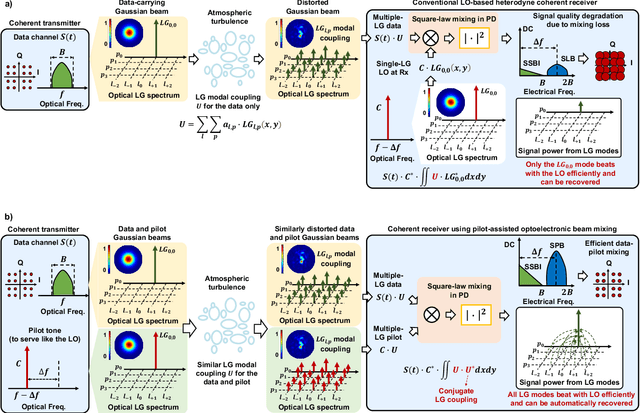


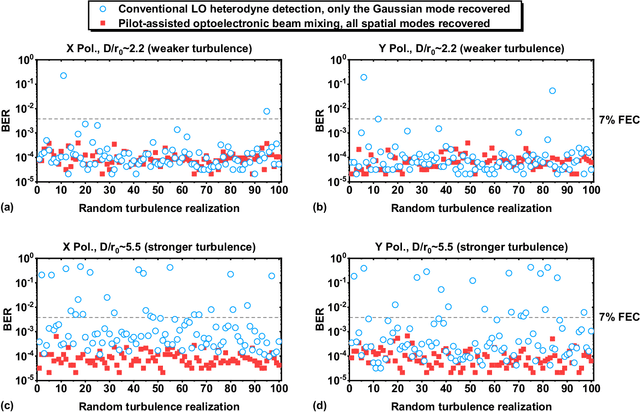
Abstract:Atmospheric turbulence generally limits free-space optical (FSO) communications, and this problem is severely exacerbated when implementing highly sensitive and spectrally efficient coherent detection. Specifically, turbulence induces power coupling from the transmitted Gaussian mode to higher-order Laguerre-Gaussian (LG) modes, resulting in a significant decrease of the power that mixes with a single-mode local oscillator (LO). Instead, we transmit a frequency-offset Gaussian pilot tone along with the data signal, such that both experience similar turbulence and modal power coupling. Subsequently, the photodetector (PD) optoelectronically mixes all corresponding pairs of the beams' modes. During mixing, a conjugate of the turbulence experienced by the pilot tone is automatically generated and compensates the turbulence experienced by the data, and nearly all orders of the same corresponding modes efficiently mix. We demonstrate a 12-Gbit/s 16-quadrature-amplitude-modulation (16-QAM) polarization-multiplexed (PolM) FSO link that exhibits resilience to emulated turbulence. Experimental results for turbulence D/r_0~5.5 show up to ~20 dB reduction in the mixing power loss over a conventional coherent receiver. Therefore, our approach automatically recovers nearly all the captured data power to enable high-performance coherent FSO systems.
Confocal super-resolution microscopy based on a spatial mode sorter
Jan 11, 2021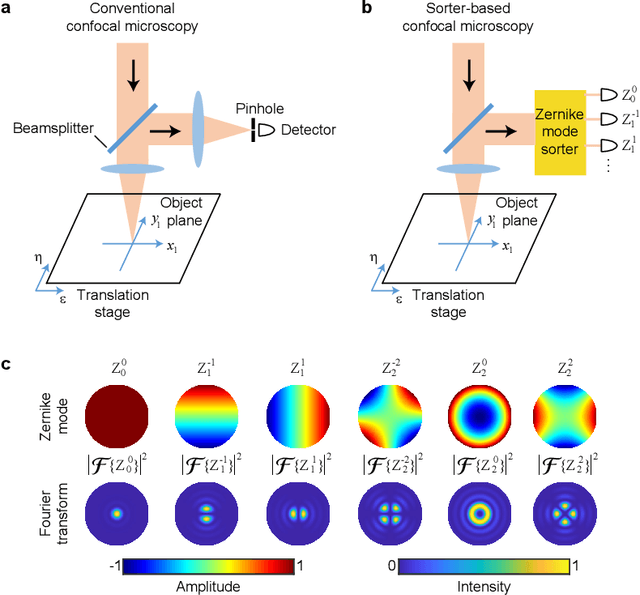
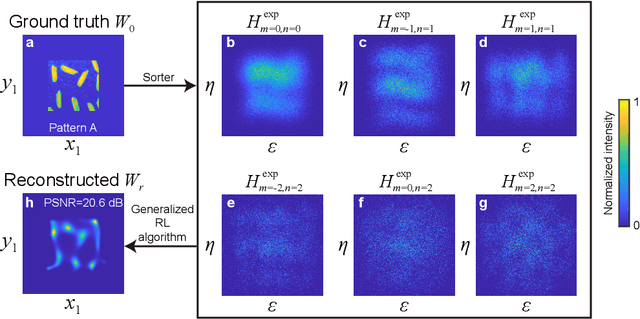
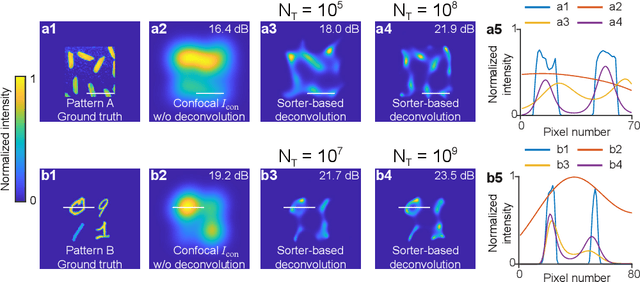
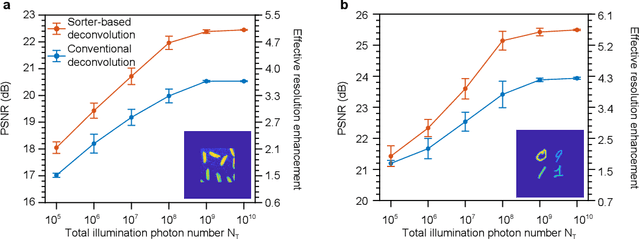
Abstract:Spatial resolution is one of the most important specifications of an imaging system. Recent results in quantum parameter estimation theory reveal that an arbitrarily small distance between two incoherent point sources can always be efficiently determined through the use of a spatial mode sorter. However, extending this procedure to a general object consisting of many incoherent point sources remains challenging, due to the intrinsic complexity of multi-parameter estimation problems. Here, we generalize the Richardson-Lucy (RL) deconvolution algorithm to address this challenge. We simulate its application to an incoherent confocal microscope, with a Zernike spatial mode sorter replacing the pinhole used in a conventional confocal microscope. We test different spatially incoherent objects of arbitrary geometry, and we find that sorter-based microscopy can achieve more than 5-fold resolution enhancement over a diffraction-limited image. In addition, the resolution enhancement of sorter-based microscopy is on average over 30% higher than that of a conventional confocal microscope using the standard RL deconvolution algorithm. Our method could potentially be used in diverse applications such as fluorescent microscopy and astronomical imaging.
 Add to Chrome
Add to Chrome Add to Firefox
Add to Firefox Add to Edge
Add to Edge